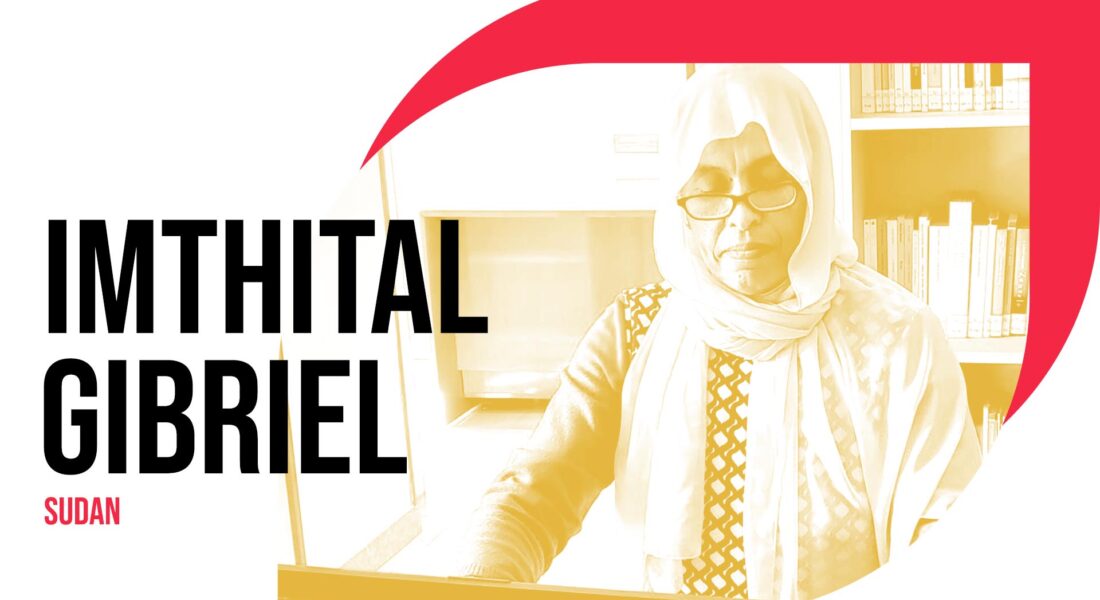
I left Sudan to escape the war, which has destroyed far too many lives in my country
Imtithal Gibriel is 53 years old and from Sudan. She arrived in Italy in 2019, invited by the University of Turin to participate in a research project in bacteriology. She graduated in microbiology, and received a PhD in bacteriology in 2014. In Sudan, she was an associate professor at the Sudan University for Science and Technology.
At the end of the research project, even though she did not know Italian, she decided to stay
in Turin in hopes of providing a better future for her 6 children. “I left Sudan to escape the war, which has destroyed far too many lives in my country”.
Despite her resolve, Imtithal faced many difficulties in order to be able to legitimately reside in Italy. She waited a long time to have her request for political asylum recognized, and she had to go through a very cumbersome bureaucratic process, having to stay in as many as two different reception centers. Once she was granted refugee status she was able to obtain family reunification for her four minor children. However, the housing she was assigned did not consider the size of her family and she found herself living with five of them in little more than one room for a long time.
Imtithal told us that she has often felt lost and scared about the future, but that despite this, she is grateful for Italy’s welcome: “I would not have chosen a country other than Italy”. She only hopes that in the future, reception procedures will become more transparent and take more account of each refugee’s skills and experience to allow him or her an easier integration into society and the world of work. Indeed, Imtithal has submitted several applications as a researcher but they have been blocked due to the non-full recognition of her academic qualifications. Currently, after winning a fellowship at the Piedmont Center for African Studies, she conducts various research activities for both the Center and Cespi. Her research is aimed at the world of microbiology in general, but she is also probing the cultural scientific landscape of African writers.
“In Italy, I have found myself again; I feel alive and ready to face life’s difficulties. Indeed, I feel ready to help my people and contribute to enriching science, offering my experience and background to those who want it”.
Imtithal hopes that not only the Italian but also the international scientific community will be willing to give both her and “so many other competent and valuable African women who are ‘wasting time’ saving themselves and have none to devote to intellectual production” a chance.


